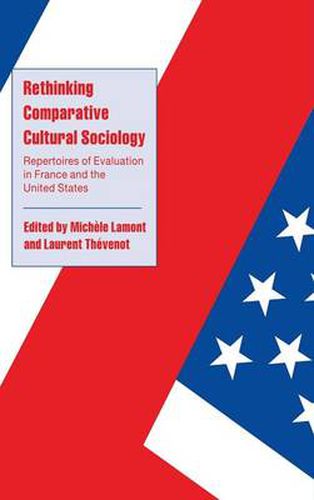Readings Newsletter
Become a Readings Member to make your shopping experience even easier.
Sign in or sign up for free!
You’re not far away from qualifying for FREE standard shipping within Australia
You’ve qualified for FREE standard shipping within Australia
The cart is loading…






This book provides a powerful new theoretical framework for understanding cross-national cultural differences. Focusing on France and America, it analyses how the people of these two different cultures mobilise national ‘repertoires of evaluation’ to make judgements about politics, economics, morals and aesthetics. The analysis draws on eight case studies by eleven French and American researchers who have worked together over a number of years to develop systematic comparisons between these countries. The topics are wide-ranging, comparing how individuals use the cultural tools at their disposal to answer questions such as: Are races equal ? What constitutes sexual harassment? What is the value of contemporary art? Should journalists be neutral? How can the defense of the environment be reconciled with economic imperatives? Moving beyond simplistic essentialist models of national character, this comparative approach offers important insights that will interest not only sociologists but also political scientists and anthropologists.
$9.00 standard shipping within Australia
FREE standard shipping within Australia for orders over $100.00
Express & International shipping calculated at checkout
This book provides a powerful new theoretical framework for understanding cross-national cultural differences. Focusing on France and America, it analyses how the people of these two different cultures mobilise national ‘repertoires of evaluation’ to make judgements about politics, economics, morals and aesthetics. The analysis draws on eight case studies by eleven French and American researchers who have worked together over a number of years to develop systematic comparisons between these countries. The topics are wide-ranging, comparing how individuals use the cultural tools at their disposal to answer questions such as: Are races equal ? What constitutes sexual harassment? What is the value of contemporary art? Should journalists be neutral? How can the defense of the environment be reconciled with economic imperatives? Moving beyond simplistic essentialist models of national character, this comparative approach offers important insights that will interest not only sociologists but also political scientists and anthropologists.